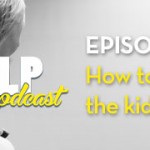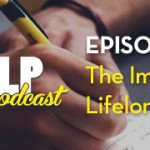Life long Learning
Never, never, never give up!
When I was a child we had fireworks every November 5th. On the box were written the instruction “light the blue touch paper and retire”. Later this was developed to “stand well back”. Now, I think that is what people do when they embrace the idea of retirement, they stand well back from life and for many this is the beginning of the end. Life is about learning; learning is living and, for most of us living and learning is working. It is engagement.
The other day the children laughed at me when I referred to a spider as a person. The spider, female in this case, from my point of view, has rights just like you and me. Some people become spider phobic but all she, the spider, is doing is living and doing her work, living her life.
All beings work. Everyone on this planet from ants to elephants work. Working is engagement in the process of living. Essentially this means getting up in the morning and going about the business of finding food, creating shelter and safety and raising the next generation. We are all at the same thing.
Working and living should be the same thing…
Some of us, perhaps all of us, also play. Dogs obviously, primates definitely, the horses when I go for my early runs are playing chase around the field, maybe even ants have down time and play. The essential is the working, because without engagement in the work process we die. Food and shelter are fundamental, they are essential work.
However, compared to all the other people on the planet human beings are different in two ways. The first is that we have a much longer childhood, not maturing until we are twenty five years old, which is a hugely non productive, non working time, supported by parents and society, however this does allow for much longer brain development and evolutionary advantage. We also have money.
Money has a unique effect for humans. We no longer need to work like all other species doing essential work. We are able to do abstract things with our time and collect tokens (money) for doing it and exchange these for food and shelter and safety. So for many humans the concept of ‘work’ has become very different. Someone who writes or paints or produces cars or, is a nurse or carer, does not do essential work, other people do it for them.
The strange thing is that those among us who do essential work become ever fewer and fewer to the point that if the majority were required to become essential workers they would not have a clue how to go about it. The plethora of TV programmes about groups of people abandoned somewhere like an island and having to survive is testament to this. Both practically and socially many fail.
Now then, when you live the ‘normal’ life of an essential worker, which must be within the rhythms of nature and season, it is a life long task. Any species that decided they had had enough and stopped doing their essential work would die, simple. Yet socially and financially human beings have created this retirement, when they stand back from life, cease to be productive and survive. I guess I should qualify that statement with reference to the industrial world and the west. There are many countries where social welfare does not exist.
There is a strong case for not retiring.
Reasons not to retire
1: We know that it is in the process of engagement and life long learning that new brains cells are created and that people remain younger.
2: When people become physically less active and more sedentary they develop more diseases.
3: Those that maintain a working function maintain and develop social relationships and maintain a sense of belonging.
4: Most productive people have a stronger sense of self and self-esteem.
I could go on, and on. I guess one big one that has hit the western industrial world is that supporting retired people costs much more money than anyone ever expected and we can’t afford it. This is where the money token idea begins to breakdown.
I know from my own clients that the people who continue to work, and I see many people still at work in the seventies, even If that work is voluntary, yet regular and committed, have higher levels of self esteem and enjoyment, have a stronger sense of purpose and value. They stay younger longer.
At what point do we stand back from life, do we retire? For some people this begins at fifty and for others it never happens. My definition of success and happiness is waking with a smile on your face feeling that you have something that you truly want to get out of bed for something to go and do that if both meaningful and fulfilling. For many, this is called work, though many do not realise it until they retire.
Whether you do it for money, or the love of it, don’t stand back, remain involved and engaged in the process of life and living. I promise you that you will be happier.
Take care be happy and keep on learning
Sean x




Thanks for your blog today. It echoes my own situation.
I have a fridge magnet which says ‘retirement is when we stop living to work and start working to live’. Having retired from my teaching job I have found ways to stay engaged on a voluntary basis and now the challenge is not how to get up in the morning but how to fit everything into my day because there’s so much to do and so many opportunities to consider. I can’t guarantee the extra brain cells but staying active, accepting challenge and getting involved have all contributed to a sense of well-being, brought new friends, taken me to different places and offered me new direction.